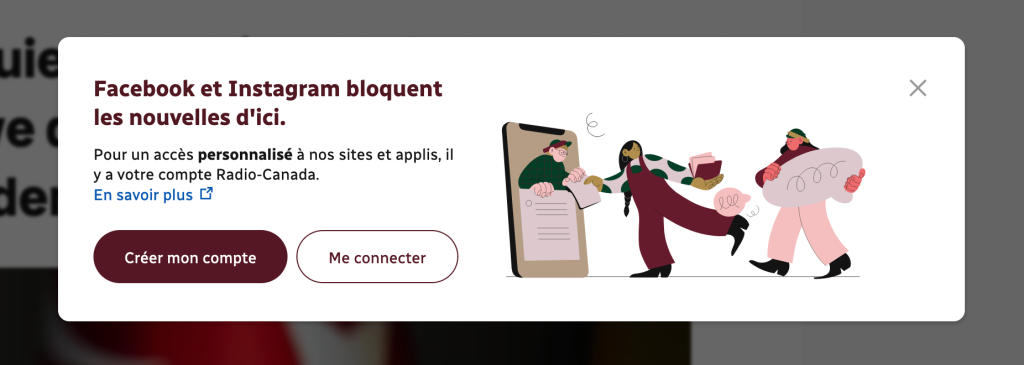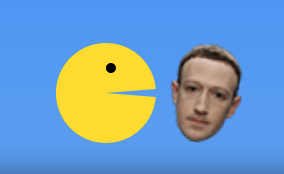In the boring country where I come from, sometimes, things happen. On 15 June 2023, Prime Minister Justin Trudeau’s Liberal government passed Bill C-18, the long name of which is The Online News Act, the even longer name of which is An Act respecting online communications platforms that make news content available to persons in Canada. In a nutshell: the Canadian government is forcing mega online platforms to pay compensation to small Canadian news outlets, as these web giants take the lion’s share of advertising revenue each year — 80% of 14 billion CA$ in 2022, just for Google and Meta. The details are in the bill’s fine print, and I won’t delve into them.
That kind of move is not a first. A similar bill was passed in Australia in 2021. In both cases, Australia and Canada, Google and Meta’s response was the same: blocking the news coming from those countries. In Australia, the two giants negotiated agreements and deals around February 2021. Google’s situation in Canada remains unsettled and, as they explain in this statement, they tried very hard to *improve* Canada’s bill, as if *they* were the ones who make the laws in the country. To this day, Facebook and Instagram (i.e. Meta) continue to block news stories originating from organisations or individuals located in Canada.
Facebook’s ban on Canadian news has negative impacts, not only on major news outlets like CBC/Radio-Canada but especially on smaller organisations. Think of regional and local media, think of French-language media outside Québec (Québec is the only officially francophone province within Canada’s 10 provinces and 3 federal territories), think of worker and student associations, think of autochthon media. All of those play a fundamental role for maintaining a healthy democracy, in Canada just like in any country of the world.

The digital guerrilla is getting organised.
On the 15th of September, on the occasion of the United Nations’ International Day of Democracy, various professional journalists organisations in Québec called on the population to do without Facebook and Instagram for 24 hours by refraining from consulting the platforms and publishing anything on them. Was that action successful? To be honest, I can’t tell, I didn’t log into my Facebook account on that day. But the event did cause a stir, with local political parties, from left to right, pointing fingers at each other for a suspected lack of solidarity with the movement. It’s obviously a drop in the ocean, an extremely unequal fight, but symbols are important.
Recently, developer, activist and artist Maxime Larrivée-Roy created ZuckHub.ca, a site that allows you to continue sharing articles on Facebook and Instagram by redirecting internet traffic through an IP address that thwarts Meta’s robots. In less than 24 hours after launch, the site redirected around 330 news articles for 10,500 consultations. Of course, Meta is going to respond, but Maxime has other servers ready to go and other funny domain names such as ZuckLePlouc.ca (Zuck the redneck) or ZuckLaCensure.ca (Zuck the censor).
On 21 August, as Canada faced the worst wildfires in its history, Trudeau accused Meta of putting its own profits before the safety of Canadians. I think he was right to point that out. The leaders of these web giants seem to understand only one logic: that of the free market and unbridled capitalism. It’s understandable because it’s an easy-to-understand logic, and I’ll let you in on a secret: they’re a little bit dim.





Interesting to hear about this from another country’s perspective! As an Australian, this bill was a big deal nationally for us, and sparked a lot of national conversation over how the government can protect traditional media economies from internet giants. It truly is a David and Goliath style situation though, sometimes I truly do wonder if there is anything that can be properly done to curb the influence that large and international tech/media companies have on local markets without serious regulation. I guess people are too tied up in the economic benefits to be paying too much attention…
Thank you @emhaultain for your input from Down Under. Obviously pessimism will get us nowhere. Australia and Canada could be the first two dominoes to fall. Maybe that’s why Meta is so uncompromising in Canada, to send a warning to other countries? We’ll see.